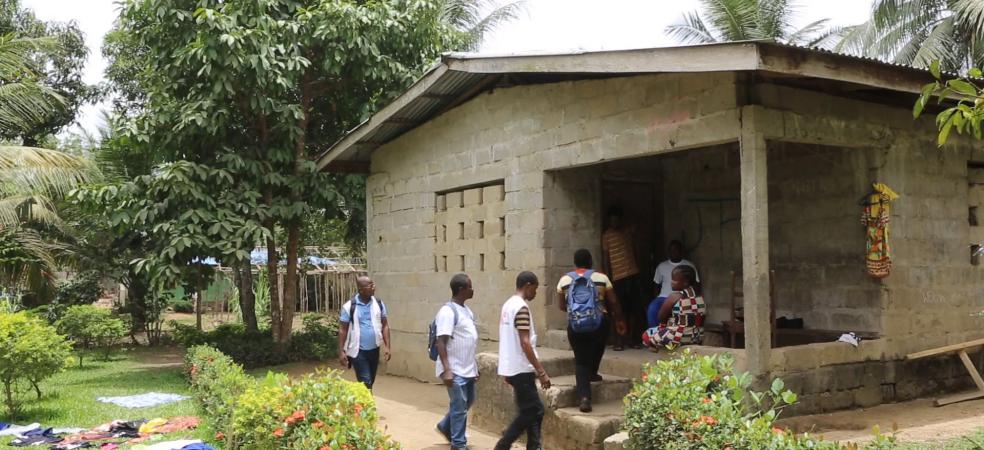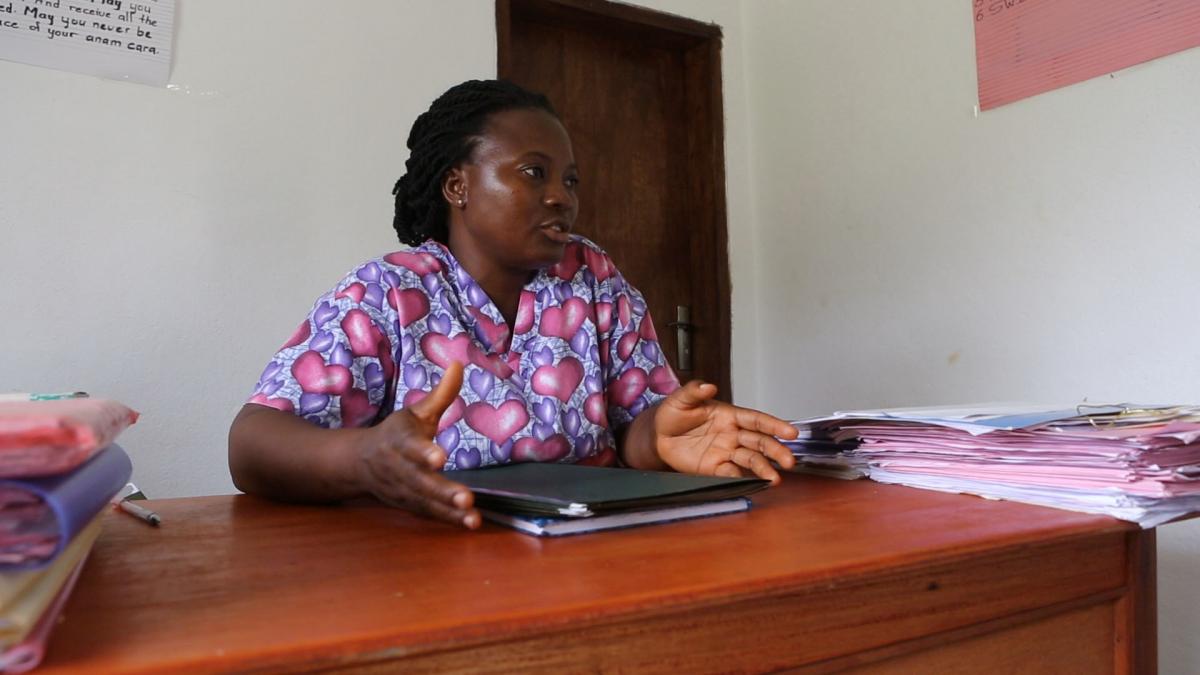
Treating severely disturbed people suffering from schizophrenia, bipolar disorder, severe depression, or post-traumatic stress disorder remains a challenge especially in low-income countries. MSF has developed a holistic approach that helps improve patients’ quality of life significantly.
In Liberia, it can be extremely difficult for people with severe mental health disorders to access effective treatment. As a result, both the patients and their families suffer.
“A 32-year-old psychotic patient had been chained for months when an MSF team first visited him. His family had put him in chains out of desperation, because they didn’t know what to do about his sometimes violent behaviour,” says Emmanuel Ballah, MSF mental health activity manager in Liberia.
Without medical treatment to address their symptoms, families who cannot afford to provide full-time care to a family member with mental health issues have to resort to extreme measures – chaining or tying up the patients, locking them at home, or leaving them at churches being physically restrained by other people.
To enhance mental health and epilepsy treatment in Liberia, MSF has developed a community-based model. Treatment and care is delivered in primary healthcare clinics, so people can come for medical consultation on their mental health condition, similar to any other health condition. Trained and supervised by experienced MSF mental health professionals, Liberian clinicians and nurses provide medications and carry out follow-ups to ensure adherence to treatment therapy.
“Through appropriate psychiatric evaluation, counselling and medication, we have helped that psychotic patient and his family manage his condition. The tragic and harmful practice is no longer needed.”continued Ballah.

Moreover, community health workers actively look for people who otherwise might not be able to go to a clinic. For instance, one feature of schizophrenia is that patients can be so disabled that they are unable to turn up for an appointment. Often they have reduced insight into their disorder, and might struggle to accept medication even if it is offered.
Epilepsy is not technically considered a mental health disorder, but it can be quite debilitating. The MSF team saw an 18-year-old man who had epilepsy and a developmental disorder, with frequent seizures. He had never been to school because of his illness.
The community health workers identified this young man, gave education to his family about his condition, and brought him to the clinic. Stigma continues to be a major challenge for people with epilepsy, and they are sometimes misunderstood as posing risks to others. The community health workers have supported this young man, now seizure-free, to go to school, by helping teachers and students understand his condition. This illustrates how the community-based approach can make a big difference in individuals’ lives. In the case of this young man, his sense of purpose was restored, and his family was relieved.
MSF started the mental health and epilepsy programme in Liberia in September 2017. Currently, it is providing treatment to over 900 patients. MSF worked in Liberia from 1990 until 2009, and returned to the country in 2014 to respond to the Ebola epidemic. Today, MSF also runs a paediatric hospital in the capital Monrovia.




